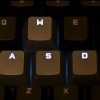-
Topics
-
2
-
1
-
1
-
1
-
9
-
1
-
0
-
Idkanythingaboutpcs ·
Posted in Windows2 -
0
-
MayonnaiseHaze ·
Posted in CPUs, Motherboards, and Memory0
-
-
play_circle_filled

Latest From ShortCircuit:
This wireless router can’t possibly be good… can it? - Minion Routers


.jpg.5cc14cacf0bfa9d58de316927a37ec08.jpg)














Create an account or sign in to comment
You need to be a member in order to leave a comment
Create an account
Sign up for a new account in our community. It's easy!
Register a new accountSign in
Already have an account? Sign in here.
Sign In Now